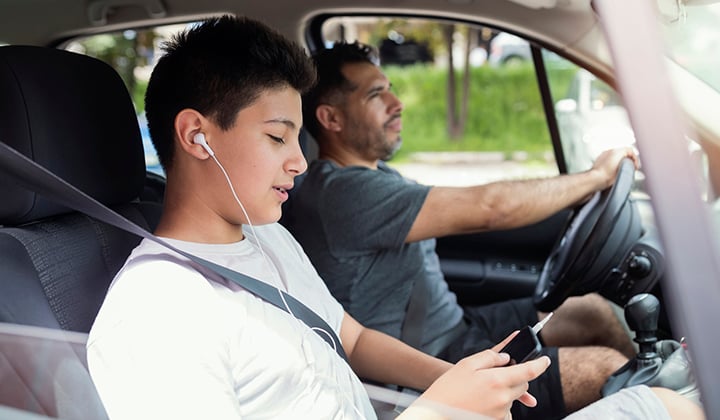
Has your kid asked for $150 Airpods yet? I remember when headphones came free with the phone or tablet, but times have changed. Whichever headphones kids use, there is always one constant question…How loud is too loud when it comes to headphones?
It’s not just music that could be too loud. It’s TikTok and Netflix and everything in between. We’ve also had kids in remote schools where they are in classes all day online and using headphones. In terms of hearing loss risk, we now need to worry about time spent listening along with volume.
What could develop is a noise-induced hearing loss, or NIHL. It is avoidable, but if it does happen, is permanent. The World Health Organization shares kids should spend no more than 40 hours per week using a personal audio device. And the level should reach no higher than 75 decibels. Which is less than even some “kid-safe” headphones, which have often been above 85 and 90 decibels. Here are a few things I recommend to prevent hearing loss.
- Turn the volume down (even on “volume-limiting” products). Some headphones claim to have maximum noise output levels that won’t damage hearing. But studies have shown these claims aren’t always reliable and offer a false sense of security. The best bet is for kids to keep the volume at half level.
- Use noise-canceling earbuds/headphones. Noise-canceling earbuds or headphones can reduce the need to crank up the volume and help kids hear better by drowning out external noise.
- Take regular listening breaks. Encourage kids to give their ears a rest and take hourly breaks, even if just for a few minutes. The potential for hearing damage hinges on how long a person listens as much as how loud they listen.
- Model safe use. Practice what you preach by watching your own volume and taking other prevention steps. You’ll be a great example—and you’ll protect your own hearing, too.
- Help children appreciate their hearing. Talk to kids about why safe listening is important, so they understand you aren’t just nagging. Let them know that hearing is something to value and they should want to continue enjoying their entertainment (and more) for years to come.

